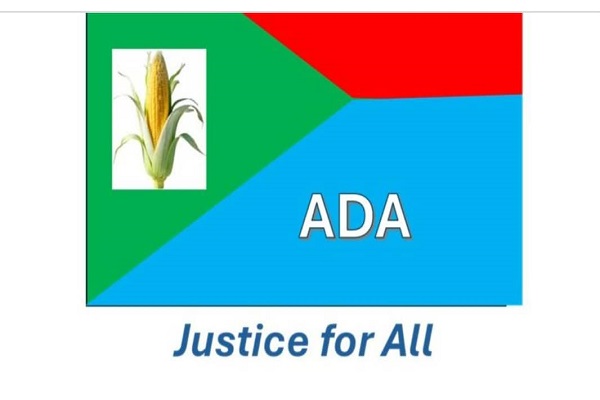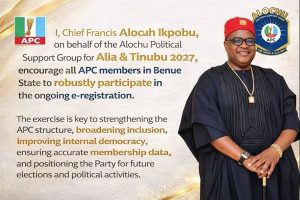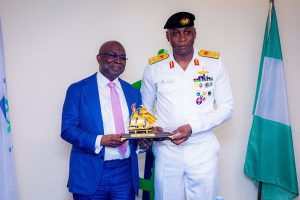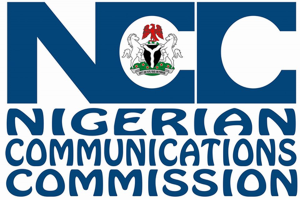By Barnabas Obagwu
When a group of politicians from the nine Local Government Areas of Benue South Senatorial District met at Otukpo on Friday, June 20, 2025, there were, perhaps, two things on their mind: to revamp their personal political fortunes and be part of history by changing the political dynamics of Nigeria through the 2027 general election. The group was composed largely of politicians who lost out in the internal crisis rocking Nigeria’s main opposition party, the Peoples Democratic Party (PDP). Their sole mission is to discredit PDP and the APC government as a way of charting a way back to political relevance and power on another political platform.
It is not surprising, therefore, that it was Sir John Ngbede, the man who has spent all his political life – nearly three decades – serving as Local Government Chairman, Special Adviser to the State Governor, Commissioner, State Party Chairman and Deputy Governorship candidate (twice), all on the platform of PDP until a few months ago when power slipped out of his hand, that led the assault on PDP during the meeting at Otukpo. Obviously sowing sour grapes, Ngbede said: “The PDP has been taken over by individuals building barriers rather than bridges. They have imported poverty and division among our people. It’s time we unite under a new coalition to restore hope.”
David Olofu, the immediate past Benue State Finance Commissioner for eight years under PDP also criticized the current administration for its alleged failure to deliver basic infrastructure in rural areas, which he said has worsened the insecurity plaguing the state. “Any government that fails to invest in rural infrastructure fails its people. The resulting insecurity has pushed our people into deeper poverty. That is why they are seeking an alternative political platform to reclaim their dignity and development.”
The Benue South group is part of a nationwide emerging political movement that is expected to coalesce into an opposition coalition of politicians (not parties) capable of challenging both PDP and the ruling APC in the 2027 general election. The group, at the national level, is led by former Vice President Atiku Abubakar; ex-Kaduna State Governor, Nasir El-Rufai; and Peter Obi, 2023 Presidential candidate of Labour Party. Other notable backers of the coalition include former Rivers State Governor, Rotimi Amaechi; ex-Governors Rabiu Kwankwaso, Aminu Tambuwal, Rauf Aregbesola as well as Senator David Mark—a former Senate President from Benue State—and Dr. Umar Ardo, leader of the League of Northern Democrats and a former aide to President Olusegun Obasanjo.
Already, the group has officially applied to the Independent National Electoral Commission (INEC) to be registered as a political party named the All Democratic Alliance (ADA). According to them, ADA will serve as a fresh platform to challenge the current administration under President Bola Tinubu. They are banking on re-enacting a 2013 precedent set by Action Congress of Nigeria (ACN), Congress for Progressive Change (CPC), All Nigeria People’s Party (ANPP) and other smaller parties which joined hands to form the All Progressives Congress (APC) with a mission to unseat the then-ruling PDP in 2015. They succeeded. They promised sweeping reforms: a renaissance in governance, a revamp of the economy, a halt to insecurity, and a new era of accountability.
The emerging coalition claims that eight years of APC government under Muhammadu Buhari’s presidency brought only modest gains in infrastructure which were later swallowed up by massive regression in nearly every other area of society like security, accountability, and the economy. They claim that the incumbent President, Bola Ahmed Tinubu, has performed even worse so far after two years. That’s why they are offering ADA to Nigerians as an alternative political platform to produce Nigeria’s next government in 2027.
But what are the chances of success of the coalition? The promoters and their supporters are upbeat, believing that Nigerians will be persuaded to vote out APC on the basis of poor performance. They cite the hardship visited on Nigerians by the removal of fuel subsidy, alleged worsening corruption, nepotism in Federal appointments, the deteriorating state of insecurity, among others. “As 2027 draws near, the choice becomes clearer,”Ode Ageh, one of the coalition’s faithful from Benue state, wrote, “continue with a regime that seems intent on riding the country into the ground—or throw weight behind a united coalition with the spine, spread, and sincerity to rescue Nigeria before the last light goes out. The wise option is to join hands with the coalition to rescue Nigeria.”
But political pundits and followers believe the odds are hugely stacked against the coalition. History and precedent are not on their side. In the First Republic, Chief Obafemi Awolowo’s Action Group (AG) joined forces with Dr. Nnamdi Azikiwe’s National Council of Nigerian Citizens (NCNC), birthing the United Progressive Grand Alliance (UPGA). It did not work. In the Second Republic, the National Party of Nigeria (NPN) and the Nigerian Peoples Party (NPP) struck an accord, the famous NPN/NPP alliance. It failed. The successful ACN/CPC/ANPP merger of 2013 which brought down PDP in 2015 was an odd one out, created by Bola Tinubu, the political master strategist, the man the new coalition wants to unseat. But he has no match on the frontlines of the emerging coalition. Nigerians are not good players of opposition politics. They have a price. And there is a willing and capable buyer in Tinubu, the man they want to topple.
The first hurdle the coalition must scale is the Independent National Electoral Commission (INEC). Getting their party – ADA – registered would be akin to passing the elephant through the eyes of the needle – that is, if we acknowledge, from the conduct and outcome of the 2023 Presidential election, what the current INEC leadership stands for. Already INEC has raised the red flag at ADA when it recently warned political groups that no external pressure or sentiment would influence its decision-making process and urged them to comply with legal and constitutional protocols. In fact, contrary to media reports that ADA had filed an application for registration, INEC’s National Commissioner and Chairman, Information and Voter Education Committee, Mr. Sam Olumekun, has said that there is no valid letter of intent or application for party registration before it. “We have so many letters of intent presently and none of them is an application yet,” Olumekun said. “They must first meet the criteria before submitting a letter of intent.”

However, if, by some miracle, ADA gets registered as a political party, the next obstacle would not be far away. It is located in the promoters of the project themselves. At least three of them – Atiku Abubakar, Rabiu Kwankwaso and Peter Obi – are Presidential candidates of ADA in-waiting. Atiku and Kwankwaso are veterans in the presidential race and are believed to be in the project primarily for the presidential ticket. Obi, the new comer to the race, has been warned by his supporters they would not join him on the emerging platform if he is not made the Presidential candidate. Therefore, the tussle for the Presidential ticket of ADA has the potential and capacity to tear the coalition to shreds. The losers will simply walk away when one picks the ticket, if their antecedents are anything to go by.
Now, let’s assume the coalition overcomes the looming obstacles, what new menu are they bringing to the table for Nigerians? Reinstate the fuel subsidy? Revamp the economy? Restore security? Have Nigerians not heard these promises before at every election circle? But haven’t things gotten worse with every new government? With a different party in power? Honest answers to these questions would definitely not give the coalition an edge over the government on ground. Their members are chips off the old block.
To drive home this point, permit me to quote extensively from a WhatsApp post by Professor Johnson Agbinya: “How is this different from PDP? Are we serious? It is not enough to take on a new identity with the same character. If you check all the parties, most members have crisscrossed parties with the same characters with nothing changing. It is impossible for Esau to become Jacob and Jacob to become Esau.
“For a new party to succeed, it must have completely fresh faces without inheriting dead weights from existing parties. If those faces have been in the leadership and major stakeholders of existing parties, the party will not gain traction because we would be just recycling existing problems and behaviours.”
If elections were to hold in Nigeria today, the hottest issue to shape its outcome would most likely be the security crisis rocking the country. Using the recent massacre in Benue state as the symbol of insecurity, and with all other parties led by ADA aligned against President Tinubu, how is the outcome likely to turn out? As it stands, the heaviest backing for ADA comes from the northern Nigeria, specifically, the Fulani, the ethnic group believed by most Nigerians to be the architect of the current terrorism, banditry, genocide ravaging the country. Would Benue people, the latest victims of mass killings, reject APC, led by President Tinubu in favour of ADA?
Francis Oche, from Benue South Senatorial District, where at least three Local Government Areas – Apa, Agatu and Otukpo – have been under herdsmen siege, has answered that question unequivocally. He said: “The coalition is primarily driven by Fulani irredentists, who have consistently failed to condemn the violent activities associated with their kinsmen. As typical Fulani apologists, they see no wrongdoing in their actions, believing they are fighting for their existence, particularly in the context of their cattle-rearing businesses. Supporting them amounts to collective suicide for the people of Benue. No Benue man or woman would willingly associate with those who defend Fulani marauders.”
Oche, like many Nigerians, believe that members of this coalition share a common goal: pursuit of personal political agenda. In the case of Benue South, for example, Oche says that the motive is to remove the sitting Senator, Abba Moro. According to him, a number of the spearheads of the coalition in Benue State nurse personal vendetta against Senator Moro. “Their motivations are not for the greater good but for narrow, self-serving interests,” he said. Moreover, they have a history of not finishing strong in their political endeavours…This track record suggests that the coalition is unlikely to succeed. In summary, their personal agenda and past failures point to an inevitable collapse of this coalition in Benue State.”
From a sneak peek into the profiles of the leaders of the coalition across the country, it is clear that the Benue story can be replicated in other states. It is a story of a cocktail of self-serving motives – search for personal political power and relevance, axe to grind with political rivals, fulfilment of political ambitions, among others. And unless the coalition can conjur some more convincing winning formula, it is doomed to fail.






